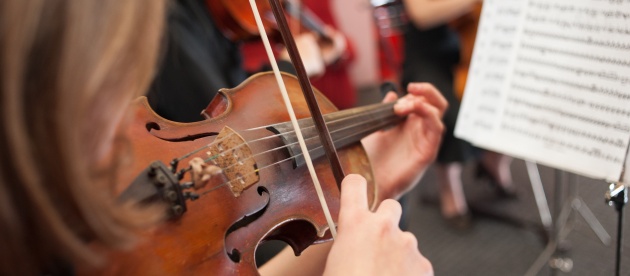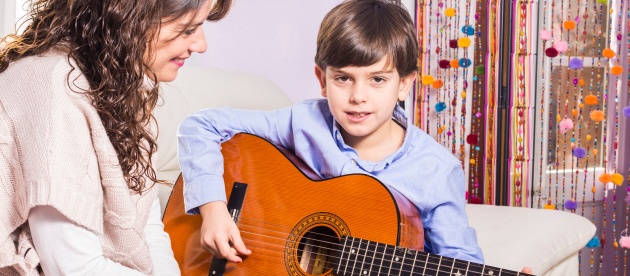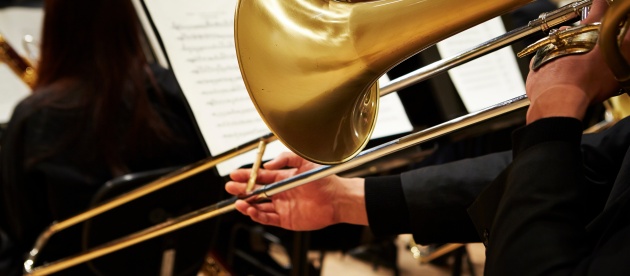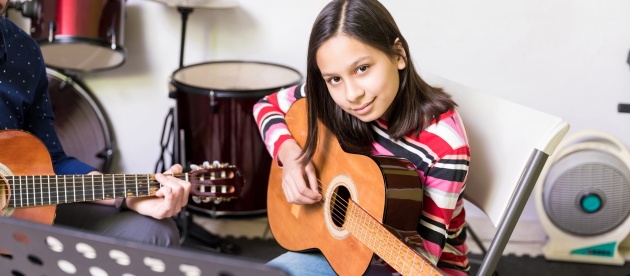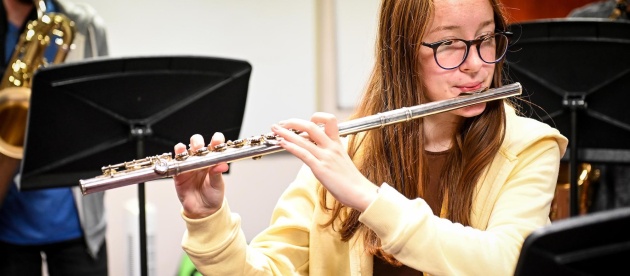Practising
Practice and progress go hand in hand. The quality, duration and regularity of practice are fundamentally important to all young people who make music, whether formally or informally. Regular and methodical practice reinforces the acquisition of musical and technical skills, and musical independence. But practice requires creative thinking.
Too often learners regard practice as drudgery, or focus too heavily on the amount of time spent practising rather than the quality and effectiveness of that practice. However, when learners are taught how to practise musically, they can find it rewarding and enjoyable.
Practice also enables learners to improve broader skills, including:
- using their time effectively
- developing discipline and determination
- increasing their independence and ownership of their work
- setting their own targets and working towards achieving jointly agreed objectives
- evaluating their work and progress and suggesting improvements
- solving problems and focusing on knowing how as well as what to learn
- developing creative-thinking skills by working imaginatively and reflectively
- developing social and family relationships by practising and playing together, or teaching others what has been learnt
In many ways, lessons are a preparation for practice, and the role of the teacher is paramount in ensuring that practice is productive and promotes independence. The teacher needs to demonstrate how to focus on particular skills and share successful ways of developing practice routines in detail. Although these may vary depending on the age and inclinations of individual learners, it is the teacher’s responsibility to ensure that learners are aware of the best ways of practising and that strategies are regularly discussed.
Practice is most effective if distributed evenly throughout the week: at first in short sessions, perhaps helped by parents/carers, and then increasing the sessions as learners develop independent learning skills. Learners need to be taught how to practise most effectively. Repetition goes so far but specific practice strategies are needed in order to develop many of the skills of singing and playing and to make the most effective use of the available time. Providing advice and guidance to parents/carers can be beneficial here.
Some learners have less capacity for practice due to their home environment, and can benefit considerably from schools and music centres offering space for practice in breaks or after school.
